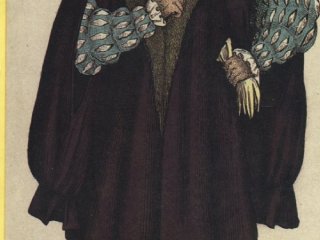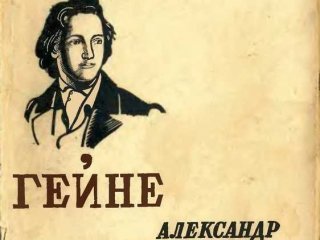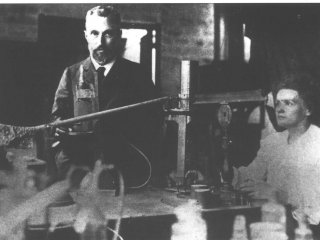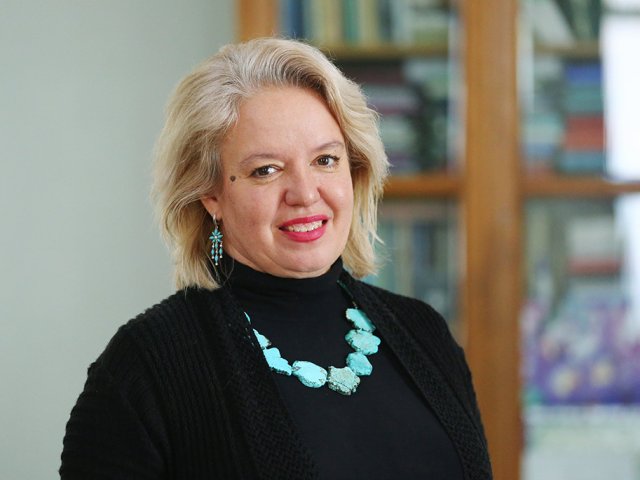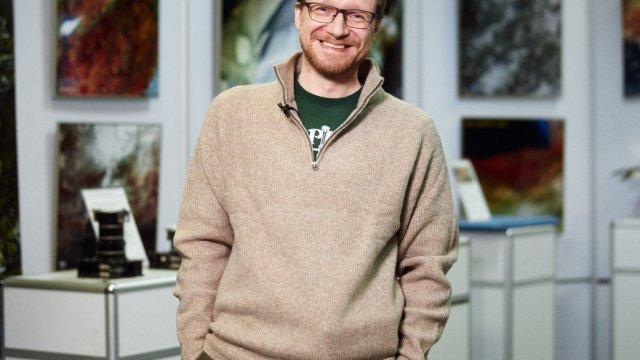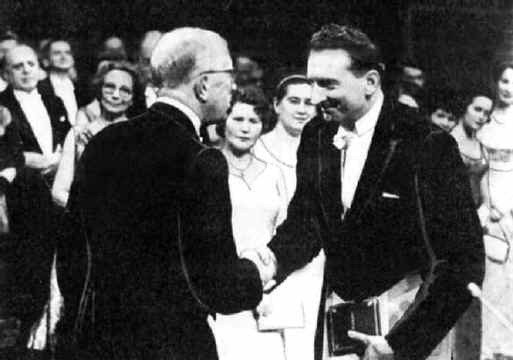
Mikhail Prokhorov, revolutionary and member of the Russian Social Democratic Labour Party, fled from exile in Siberia with his wife, Maria. They settled at the other end of the world, in Australia. Here, in the state of Queensland, not far from the town of Atherton, their son Alexander was born. Today, in this small town, at the territory of the Tropical Forest Research Center, we can see Prokhorov’s memorial plaque that says: “Alexander M. Prokhorov, Soviet scientist, one of the creators of the maser, predecessor of the laser, 1964 Nobel laureate in physics. Born in Atherton on the 11th of July of 1916.”
After the Russian Revolution, the Prokhorov family returned to the Soviet Union. Alexander graduated from the physics faculty of the Leningrad State University and dedicated himself to scientific research. All his long life, with a break for the war, was dedicated to science: he was in the army until 1944, when he was freed from it on medical grounds, due to a severe wound.
For some time, he studied microwave technique, but later, decided to switch to lasers. His team did not support him, so he took a hammer and broke all the instruments in the laboratory. There was a tremendous scandal, half of his team resigned, but the rest of them dedicated themselves to the new sphere that in the end, brought them a Nobel prize.
Russia owes Prokhorov one of its main priorities. Russians are proud of Gagarin’s space flight and the hydrogen bomb, but forget about the laser invented and developed by Alexander Prokhorov and Nikolay Basov. American scientist Charles Townes that worked at the quantum generator of coherent electromagnetic waves, also known as the laser, independently from Prokhorov and Basov, always called Prokhorov his “laser brother.” And indeed, they divided the 1964 Nobel prize like brothers: half of it went to Townes, and another half, to Prokhorov and Basov.
For many years, Prokhorov was at the head of General Physics Institute of the Russian Academy of Sciences. After his death, in 2002, the institute was named after him. There, you can find a monument to Prokhorov. Another monument to him is the Great Soviet Encyclopedia: Prokhorov was chief editor of its latest edition.
